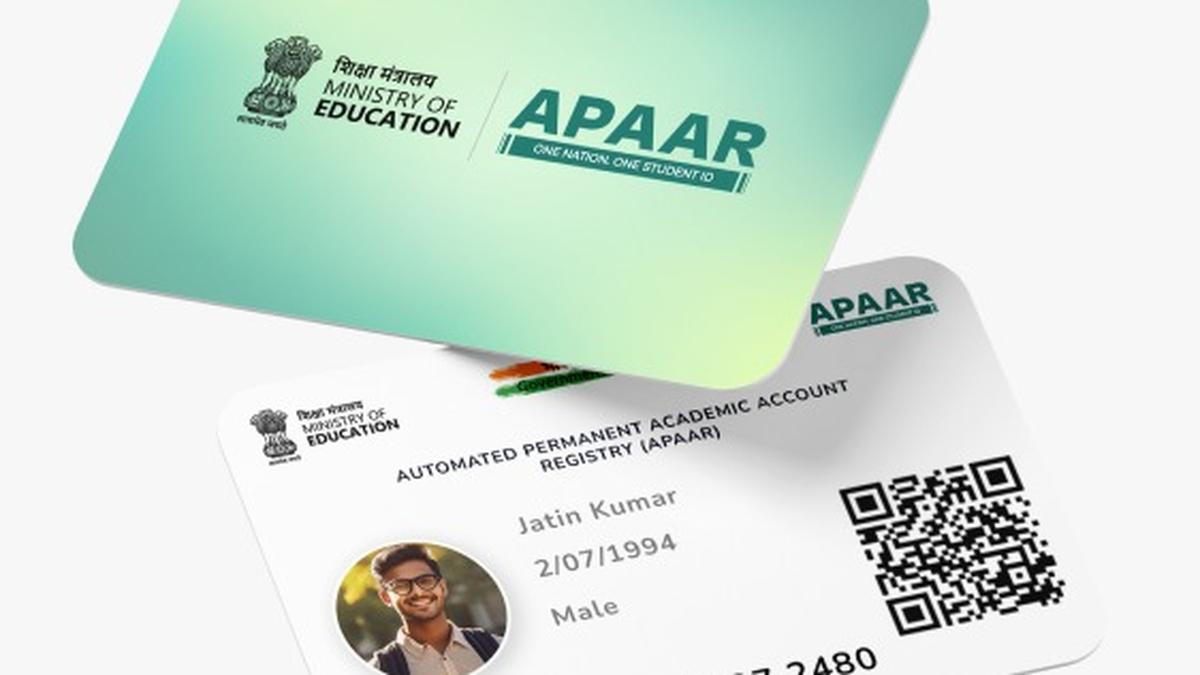Representative image
| Photo Credit: Special arrangement
The Orissa High Court on Tuesday (March 26, 2025) issued a notice on a petition against mandating APAAR ID for school students.
In a petition against the Odisha government, the Union Ministries of Education (MoE) and Electronics and Information Technology (MeitY), the Unique Identification Authority of India (UIDAI) and SAI International School in Bhubaneswar, Rohit Anand Das, a parent of a kindergartener, said the consent form for APAAR did not clearly mention that it was not mandatory, and that pleas to the school in this regard did not yield a response.
The Automated Permanent Academic Account Registry (APAAR) is a new system which aims to centralise and standardise student data as a “single source of truth”. While the MoE has stated on its website that enrolment is voluntary, it is nonetheless pushing schools — and State governments — to make sure that enrolment is “saturated”; in other words, each student must be enrolled.
The MoE, the Odisha education department and the school did not have an immediate response when reached for comment. In an interview with The Hindu, Mr. Das, a lawyer, said that while he didn’t oppose APAAR in principle, “if there is no clarity, if the public is not educated as to this system, then it should not be implemented now.”
Parents and digital rights activists have criticised the way schools and local administrators are mandating APAAR, even though there is no law requiring it. In most cases, APAAR can only be generated by linking to students’ Aadhaar, and digital rights activists have argued that APAAR’s practical mandate may amount to defiance of the right to privacy Supreme Court judgment of 2017, which ruled that Aadhaar cannot be compulsory for education.

The Odisha government’s circular to implement APAAR “did not state that the consent for generation of the APAAR ID was voluntary — which is contrary to [the MoE]’s stated position on its website,” Mr. Das’s petition said. The petition asks for a clear opt-out option in consent forms handed to parents by education authorities.
“It is submitted that effectively in the long run, such measures will restrict access to education for students who do not have these IDs, or it will force children to give up their right to privacy in order to continue their education,” the petition asserts.
“The APAAR ID lacks adequate safeguards to protect the [student]’s privacy and is contrary to established international privacy standards,” the petition further asserts. “The wide array of information sought under APAAR combined with the vague purposes of use highlight the potential of misuse and lack of privacy safeguards.”
Published – March 26, 2025 08:57 pm IST
